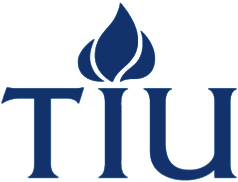
Six years ago, the Carl F. H. Henry Center for Theological Understanding set out to advance the doctrine of creation at the intersection of revelatory theology and scientific advancement, biblical interpretation and empirical investigation, hoping to make progress within the wider evangelical community in four areas: (1) to catalyze a field of study in the doctrine of creation; (2) to gain a deeper understanding of the doctrine of creation; (3) to increase openness, understanding, and intellectual humility; and (4) to provide clear and public guidance within evangelical communities.
Through a multimillion-dollar grant, six years of dedication, and five-programs, the project has been successfully completed.
TEDS faculty, theologians, pastors, laypersons, and scientists worked together to articulate the doctrine of creation in an earnest conversation with modern science. They worked to achieve four objectives, listed above, that captured the essence of their inquiry.
“Essentially, we realized theologians in particular are not often up to speed on contemporary science,” said Managing Director Matthew Wiley regarding one motive for the Creation Project. “We thought it would be beneficial for biblical scholars and theologians to think more about the doctrine of creation, especially in conversation with things happening in fields like chemistry, biology and physics.”
In order to accomplish the four objectives, as well as create space for theologians and scientists to engage in conversation about creation, the Henry Center applied for and received their first, three-year grant from Templeton Religion Trust in 2016. When Thomas H. McCall, Director of the Henry Center at that time, saw the immense progress and success of the project, the Henry Center applied for and was awarded their second, three-year grant from the John Templeton Foundation, allowing them to continue their project through 2022.
These grants funded the Creation Project's five-programs which addressed an array of audiences and provided substantial resources for the evangelical church and academy.
The Carl F. H. Henry Resident Fellowship program offered research fellowships which allowed biblical scholars, theologians and scientists to live on campus and work together to publish articles and books on the doctrine of creation.
The Dabar Conference gathered more than 60 evangelical academics from different disciplines, denominations and institutions for a summer conference, where they engaged in honest, humble, and open conversation about the doctrine of creation.
The John Stott Award for Pastoral Engagement was designed for churches interested in engaging with diverse issues through nurturing, supporting and collaboration. Every January, the Henry Center would bring the pastor and a member from each of the six engaged churches for a weekend consultation with TEDS faculty to debrief areas related to the doctrine of creation.
The Public Lectures & Events featured a range of notable biblical scholars and theologians: Al Mohler and Jack Collins debating Scripture's teaching on the age of the earth; Katherine Sonderegger and Stephen Williams as part of a spring theology conference; Craig Keener on miracles in the New Testament and today.
The Sapientia and Digital Presence program existed to provide a hub for all digitized, produced and published lectures, articles and resources from the project, which are still accessible today.
Upon completion of the Creation Project, Wiley spoke of the success of meeting the objectives, the relationships that were cultivated, and the production of valuable resources.
“We were able to connect some evangelical scientists and theologians who previously would never have had a reason to be in a relationship until now. It built a community . . . that will hopefully continue to have positive effects.”
Sapientia, the Henry Center's online periodical, is home to many articles that the Creation Project produced over the last six years. These articles, videos of all the public lectures and other helpful resources are available online.
Although the Creation Project has come to an end, the Henry Center’s dedication to "the advancement of Christian wisdom in all areas of life and thought” remains unchanged. Among other things, this amounts to continuing to host public lectures on campus. Four are already planned; more information about them can be found on the Henry Center website.
At the end of this past academic year, the Center’s previous Director, Geoffrey Fulkerson, stepped down to take a position as an Associate Professor of Philosophy at Dordt College. The Director position is currently looking to be filled. Stay tuned for updates about this and more coming soon.

